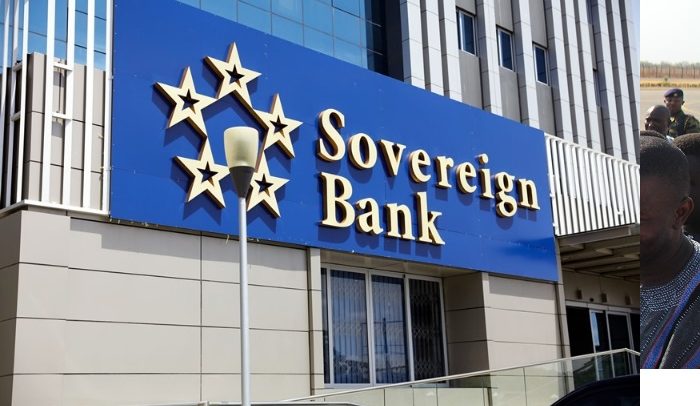SKPMG, Receiver of Sovereign Bank, has revealed a number of factors that contributed to the revocation of the bank’s licence.
A recent report by the Bank of Ghana (BoG) on some five banks – Beige, uniBank, Construction, Sovereign and Royal – which are currently under receivership, also attributed Sovereign Bank’s high non-performing loans to inconsistencies in recovery efforts.
It said as at August 1, 2018 when the licence of Sovereign Ban was revoked, it had total assets of GH¢191 million, while the bank’s loans and advances as well as government and other securities constituted 73% of its total assets.
It advanced loans to 132,058 corporations and 3225 individuals.
The top 50 loans of the bank amounted to GH¢129 million and constituted 96% of total loans.
26% of the top 50 loans were classified as non-performing based on BoG’s prudential guidelines.
94% of collaterals provided for the top 50 loans had not been perfected while investments amounting to GH¢200 million held with other financial institutions that matured have not yet been paid back to the bank. GH¢123 million of this amount matured in 2016 and was considered impaired.
Placements amounting to GH¢78 million that could not be repaid on maturity were shown as part of cash and cash equivalents.
These have been reclassified to other assets with appropriate levels of impairment.
It said mortgages constituted 63% while personal loans formed 37% of the loan book.
Furthermore, it said former directors of the bank took a decision to pay out most of the balances on current accounts to the account holders in the third week of July 2018, adding that the total amount advanced to staff was for mortgage and personal purposes.
The report further said 92% of the bank’s cash were made up of balances with local banks and the Bank of Ghana (BoG).
Construction Bank
The report further revealed that nine employees of the Construction Bank took loans to the tune of GH¢620,000.
These term loans amounted to three percent of Construction Bank’s total assets, which stood at GH¢24.7 million.
Also, 70% of property and equipment were made up of furniture and fittings and capital work-in-progress on a data center expansion project while 92% of cash and cash equivalents were made up of balances with local banks and Bank of Ghana (BoG).
An amount of GH¢2.1 million, representing both principal and interest paid to another bank on 1 August 2018 for the liquidation of that bank’s investment had not been recorded in the bank’s books.
Various items and equipment paid for, amounting to GH¢ 835,000, had not been recorded in the Bank’s books. An amount of GH¢ 48,000 paid for EFASS implementation had not been recorded in the Bank’s books. A difference of GH¢798 was noted between total USD cash counted (US$ 200) and the trial balance (US$ 30). An amount of GH¢500,000 approved by the Board and paid for coverage of the Bank’s voluntary liquidation had not been recorded in the books.
Royal Bank
In the case of the Royal Bank, the report said it had asset of GH¢376 million out of which loans and other securities constituted 56% of the total assets.
The Receiver attributed the high percentage of loans to the bank’s non-adherence to credit administration policies and inadequacies in recovery efforts.
Beige Bank
According to the report, total assets of Beige Bank were GH¢494 million while loans and other securities stood at 282 million, representing 57% of the asset.
The bank advanced an amount of GH¢274 million, representing 31% of total loans to related parties.
The Receiver said Beige Bank did not stick to credit administration policies and inadequacies in its recovery efforts just like Royal Bank.
Unibank
Commenting on uniBank, the report said that it had total asset of GH¢2.2 billion as loans and other securities constituted 82% of its total assets.
It continued that most of its debtors were in the construction sector and owed GH¢934.3 million while the financial sector was also indebted to it to the tune of GH¢558 million.
The manufacturing sector followed with a debt of GH¢283 million, same as the services sector which owed it GH¢283 million.
Barely 9% of the bank’s asset was cash and cash equivalent of GH¢187, 164 million.
Unibank’s overall net liability of GH¢7.2 billion as at August 1, 2018 was attributed to accumulation of losses from operations, deterioration in asset quality and money given to related and connected parties.
By Samuel Boadi


